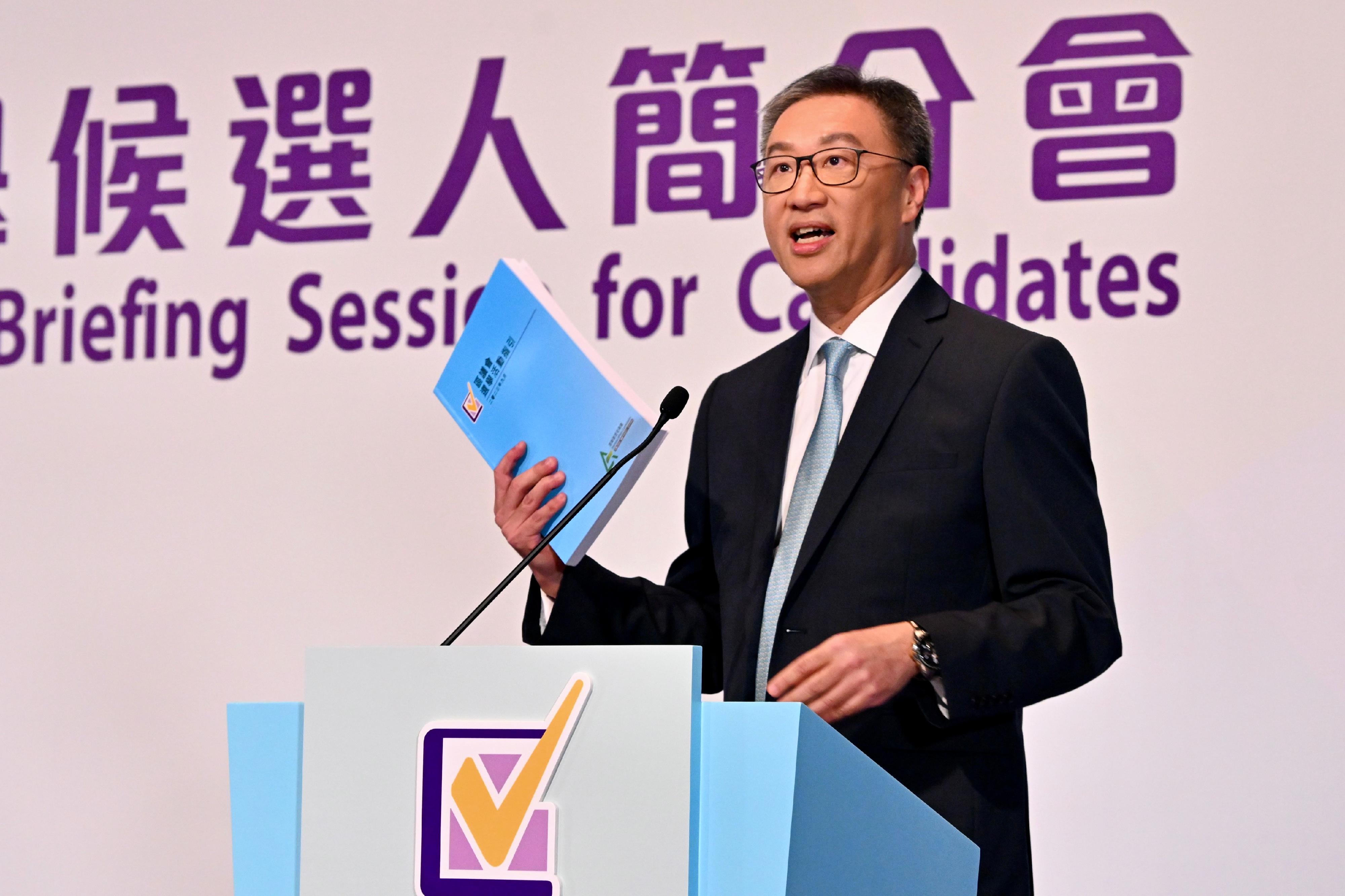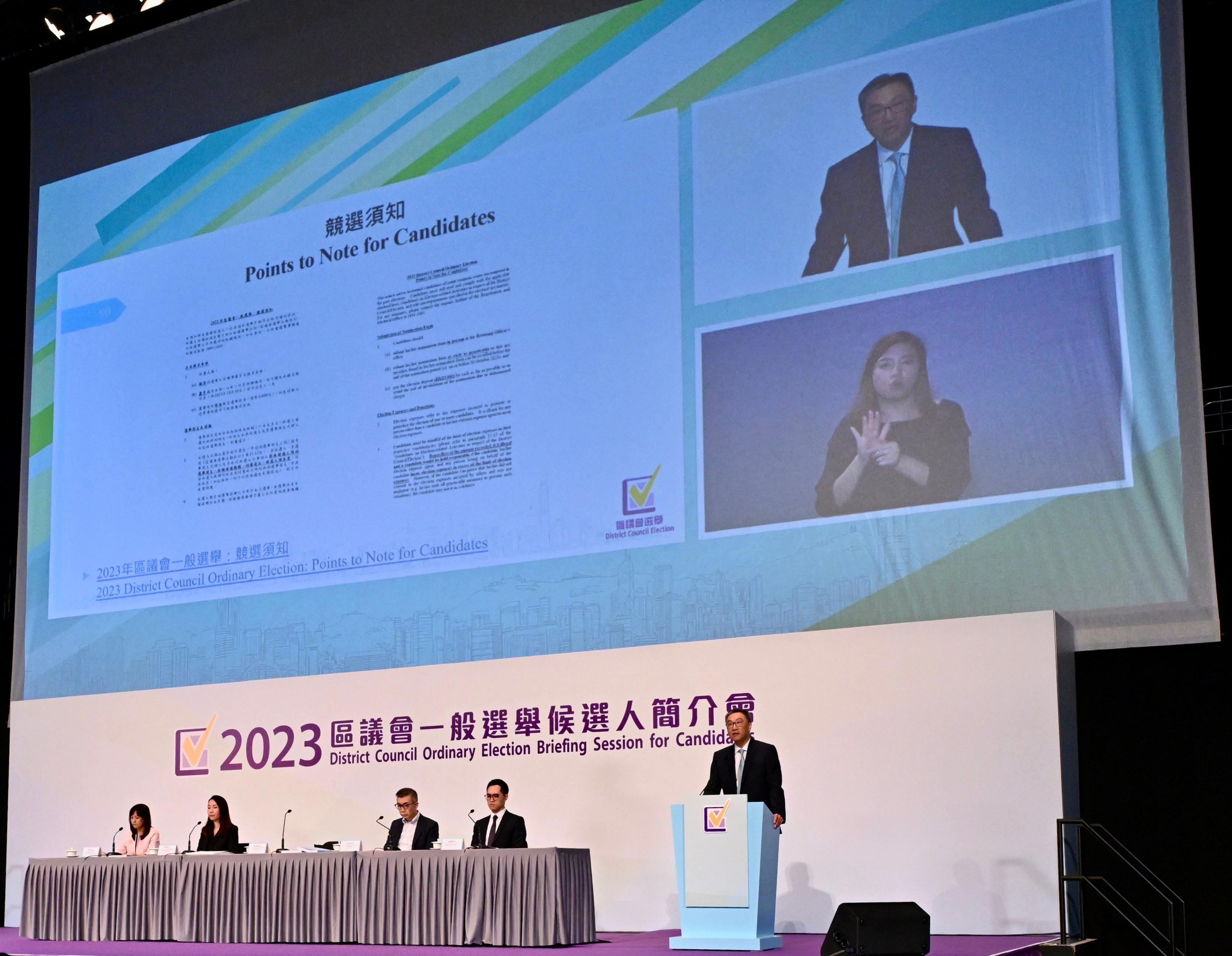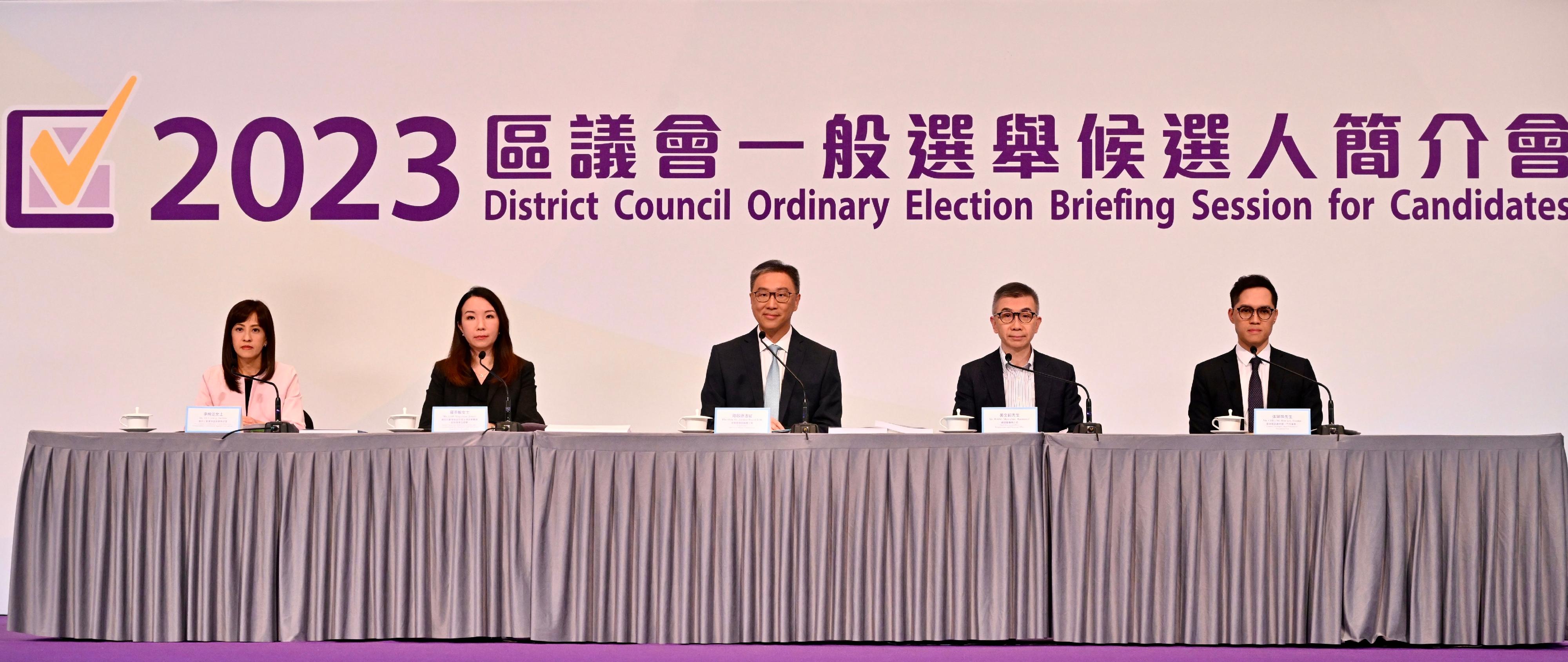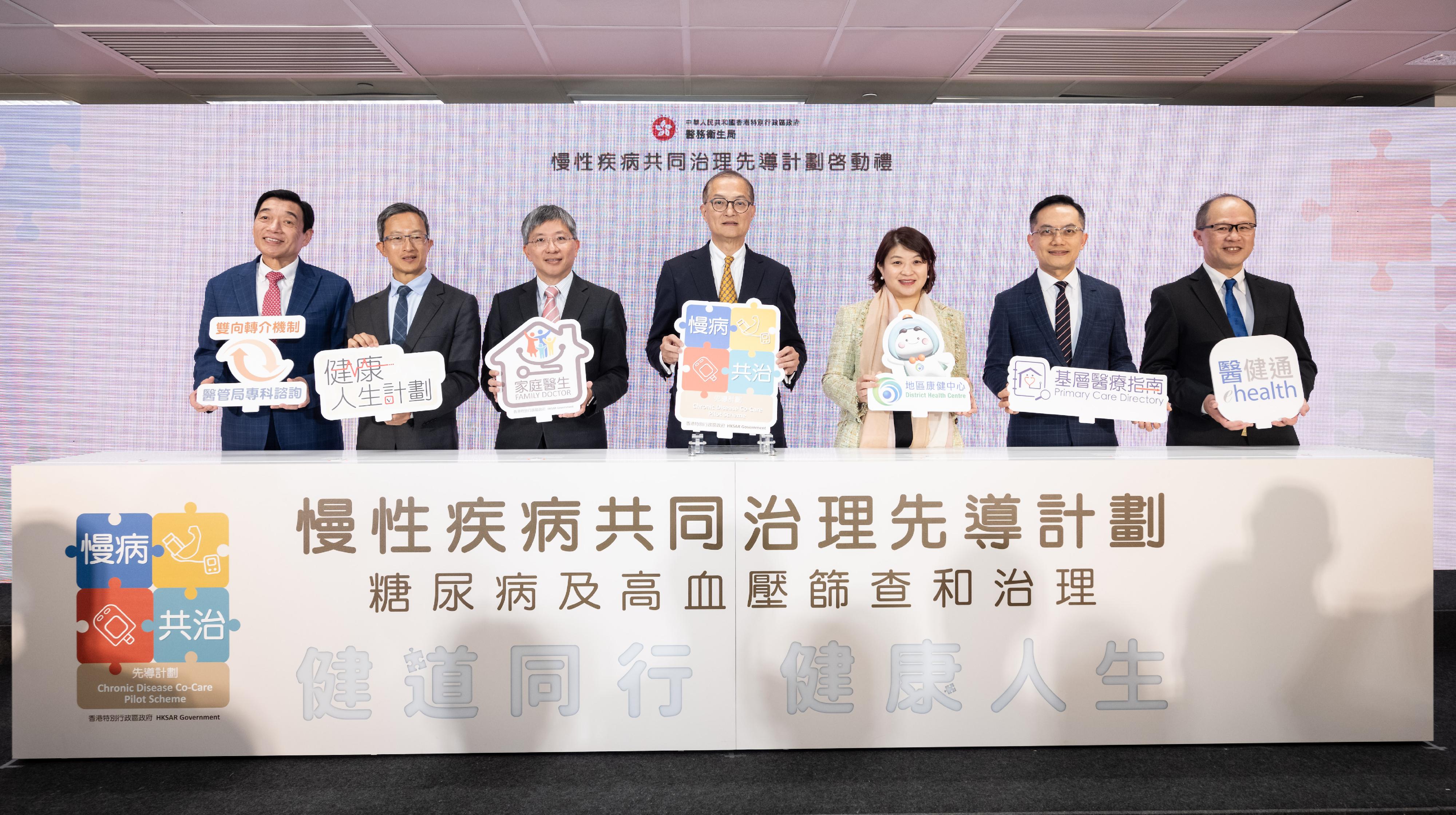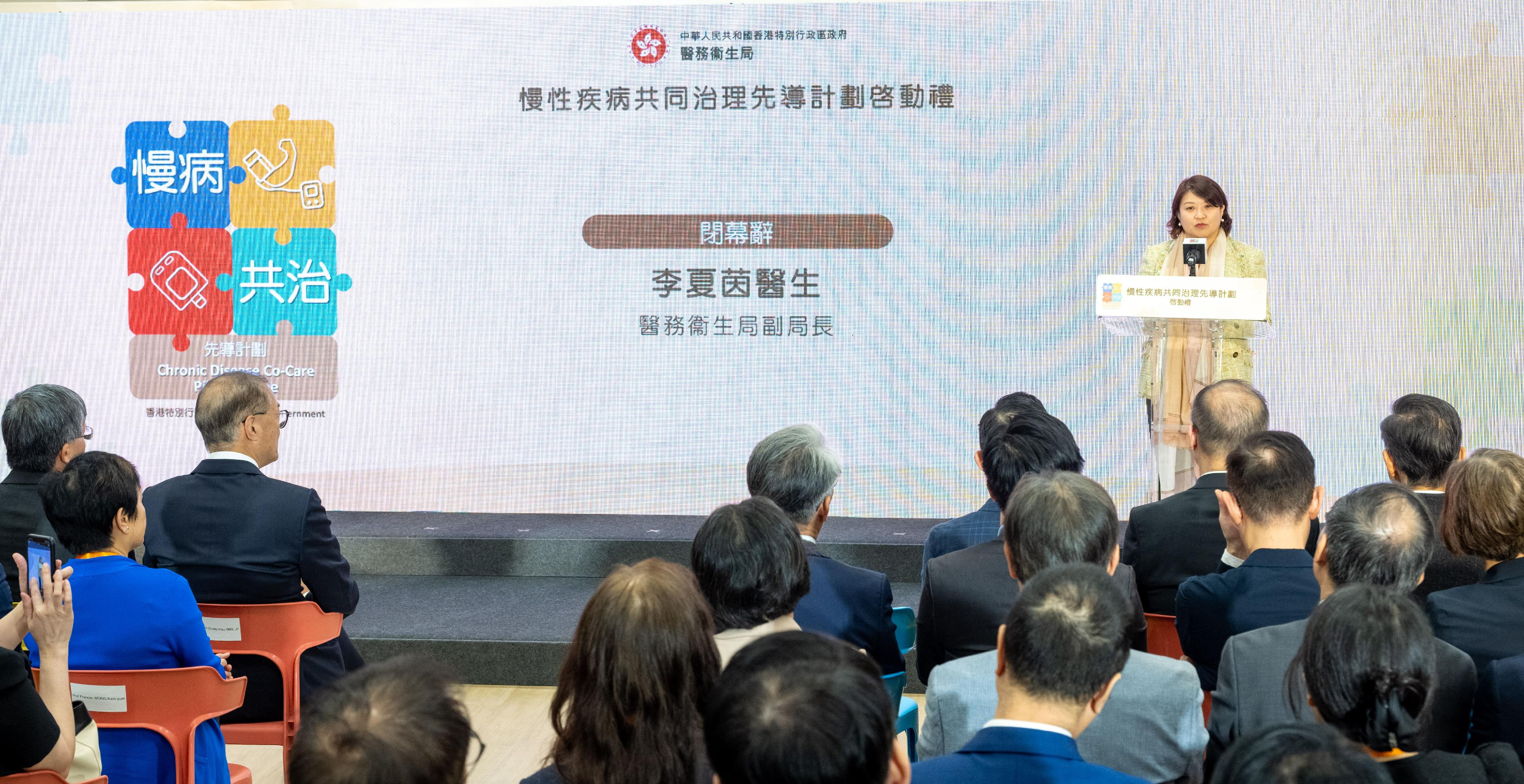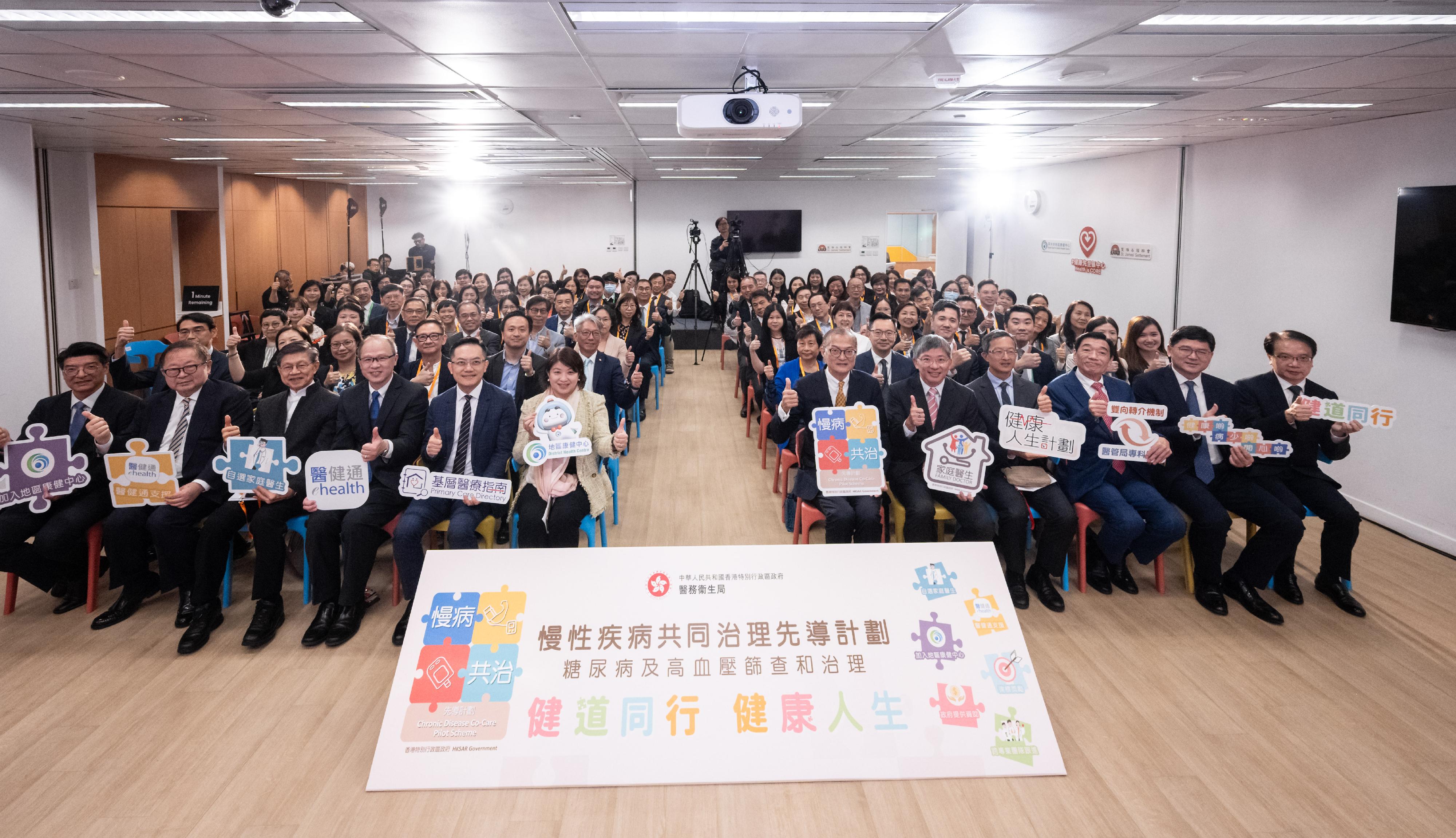District Council Election candidates briefed on electoral guidelines and legislation (with photos)
The following is issued on behalf of the Electoral Affairs Commission:
The Chairman of the Electoral Affairs Commission (EAC), Mr Justice David Lok, conducted a briefing tonight (November 13) for the candidates of the 2023 District Council Ordinary Election on the electoral arrangements, the guidelines on election-related activities and important points to note in running their electioneering activities.
“The seventh District Council Ordinary Election will be held on December 10. A total of 399 nomination forms, including 171 nomination forms for District Council geographical constituencies (DCGCs) (excluding one nominee who withdrew from the election) and 228 nomination forms for District Committees constituencies (DCCs), were received by the Returning Officers (ROs) by the end of the nomination period on October 30. The District Council Eligibility Review Committee published the notices of validly nominated candidates in the Gazette on November 10 to declare that all nominations are valid. Polls will be conducted for all of the 44 DCGCs and 18 DCCs, with a total of 264 seats,” Mr Justice Lok said at the briefing.
The ROs drew lots last Wednesday (November 8) to determine the order of appearance of names of candidates on the ballot paper and the designated spots of election advertisements allocated to the candidates. The candidate numbers of the validly nominated candidates have been promulgated in the notices of validly nominated candidates.
“The EAC will strive to ensure that the election will be conducted in an open, honest and fair manner same as in the past,” said Mr Justice Lok.
Polling stations and polling arrangements
There will be more than 600 DCGC ordinary polling stations, 18 DCC polling stations and a maximum of 48 dedicated polling stations for this District Council Ordinary Election. Four near boundary polling stations at two secondary schools in the vicinity of Sheung Shui MTR Station will be set up to enable electors who reside in the Mainland or need to travel to and from the Mainland on the polling day to cast their DCGC votes.
DCGC electors will be allocated to ordinary polling stations in the vicinity of their registered addresses. The polling hours of ordinary polling stations will be from 8.30am to 10.30pm (14 hours in total). DCC electors will be assigned to the polling stations of the DCCs to which they belong. The polling hours will be from 8.30am to 2.30pm (six hours in total).
The Registration and Electoral Office (REO) will start to issue poll cards and election-related documents including a map indicating the location of the allocated polling station(s) from November 15 onwards.
“The REO will remind DCC electors on the envelope for the poll cards issued to them that the poll for the DCC and the DCGC will take place at two different polling stations with different polling hours,” said Mr Justice Lok.
Same for the public elections in recent years, for more efficient and accurate issuance of ballot papers, the Electronic Poll Register (EPR) system will be adopted at most polling stations for verification of electors’ identity and then marking a record, but the printed copy of the final register will be used at dedicated polling stations and the polling stations with difficulties in installation and technical support due to remoteness and unstable network coverage.
The “double seats and single vote” voting system is adopted for the DCGC elections. Each DCGC will return two members, and each elector may vote for one candidate for the respective DCGC. The two candidates who obtain the greatest number of votes shall be returned for the respective DCGC.
For the DCC elections, the “block vote” voting system is adopted where each DCC elector must vote for no more and no less than the number of vacancies for that DCC, otherwise the ballot paper will be deemed as invalid. Ballot paper checking system will be set up at DCC polling stations for electors to check whether the number of candidates marked on the ballot paper is equal to the number of seats to be returned for the constituency.
To ensure that electors understand the polling procedures, the REO has produced a set of TV and radio Announcements in the Public Interest which have been uploaded onto the dedicated election website (www.elections.gov.hk) for electors’ reference.
Counting arrangements and election result announcement
For the DCGCs, the ordinary polling stations, except for the small polling stations and dedicated polling stations, will be converted into counting stations for the counting of votes after the close of polls. The counting arrangements will be the same as those for the previous District Council Elections. The Presiding Officers (PROs) will be responsible for opening the ballot boxes, counting the votes and determining any questionable ballot papers.
For the DCCs, after the close of polls, the polling staff will ensure that the locked and sealed ballot boxes will not be interfered and the counting of votes will only commence until the close of polls for the DCGCs. In the meantime, candidates and agents can stay in the counting stations to conduct surveillance of the ballot boxes. The counting of votes for both DCGCs and DCCs will start simultaneously to avoid any possible impact to the election results for the DCGCs due to the early announcement of election results for the DCCs.
Members of the public, including the media, have the right to observe the count inside the public area of the counting station but not in the counting zone. Photographing and/or video-recording is also allowed in the public area of the counting station. The REO will install video-recording facilities at all counting stations to record the actual circumstances inside the counting station and at the counting zone. A notice setting out the maximum capacity of the public area will be displayed outside each counting station.
The decision of the PROs on the validity of ballot papers is final. Candidates or their election or counting agents may make representations during the determination process of questionable ballot papers which will be recorded by the PROs. Candidates may only question the election result by an election petition after the completion of the election.
For the DCGCs, upon completion of the count, the PRO of each counting station will make known the counting results to the candidates or their agents present who will then have the opportunity to request a re-count of votes. If the request is accepted by the PRO, the re-count will take place on site immediately. The PRO will report the counting results to the REO’s Statistical Information Centre (SIC) for consolidation of the aggregate counting result on the condition that no re-count request is raised by the candidates or agents or the re-count request has been suitably dealt with. The PRO of the dominant counting station of the DCGC concerned will then make known the aggregate counting result to the candidates concerned or their agents present. The candidates or their election agents will have the opportunity to request a re-count of votes at all the counting stations of that DCGC. Upon suitably dealing with the requests, the PRO of the dominant counting station will report the counting result to the RO of the DCGC concerned through the SIC for the RO’s formal announcement of the election result.
As regards the DCCs, since there is only one counting station for each constituency, the relevant PRO will make known the counting results to the candidates or their agents present who will then have the opportunity to request a re-count of votes. Similarly, upon suitably dealing with the relevant request, the PRO will report the result of the counting of votes to the RO of the constituency concerned through the SIC. The RO concerned will then formally announce the election result.
The results will be uploaded onto the dedicated election website (www.elections.gov.hk) and published in the form of a press release.
Election expenses
The law stipulates that election expenses are the expenses used for the purpose of promoting or prejudicing the election of a candidate. Only candidates and their authorised election expense agents may incur election expenses, otherwise it is an offence. The setting of a maximum limit of election expenses is to ensure that the candidates of the same constituency do compete on a level playing field and within a reasonable level of expenditures. The maximum amount of election expenses for a DCC candidate is $100,000 while that for a DCGC candidate ranges from $512,400 to $951,600, depending on the size of the DCGC. It is an offence for a candidate to incur election expenses in excess of the prescribed maximum limit.
Mr Justice Lok reminded candidates that they are required by law to submit an election return to the REO within 60 days after the publication of the election results in the Gazette to declare all election expenses and election donations.
Election advertisements
If the name, logo or a pictorial representation of a person or an organisation appears in the election advertisement of a candidate as an indication of support from that person or organisation, the candidate must obtain the written consent from that person or organisation to the inclusion of their name, logo or a pictorial representation in the election advertisement before the publication of the election advertisement, otherwise it is an offence. Oral consent or retrospective written consent obtained after the publication of election advertisements does not comply with the statutory requirements. Candidates must submit a copy of election advertisements, the permission, consent of support and relevant information to the RO concerned or upload them onto the Central Platform or the Candidate’s Platform for public inspection within three working days after the publication of the election advertisements. It is an offence if a candidate fails to comply with the regulation.
“Although the deadline for submission of election advertisements and relevant documents has been relaxed, I would like to remind candidates once again that if an election advertisement involves support for a candidate by any person or organisation, they are still required to obtain the relevant consent of support before the publication of the election advertisement,” Mr Justice Lok said.
Election meetings
In accordance with the Elections (Corrupt and Illegal Conduct) Ordinance, an election meeting is a meeting held to promote or prejudice the election of a particular candidate or particular candidates. Expenses incurred are considered as election expenses.
Candidates attending meetings which are not election-related will not incur election expenses. However, if someone acts out of his/her own volition to promote the election of the candidate or prejudice the election of other candidates, the candidate should immediately make it clear that he/she has nothing to do with the acts, and ask the organiser to stop the meeting, and even leave the meeting. Otherwise, the expenses so incurred will have to be counted as his/her election expenses.
Clean elections
Pursuant to the law, it is an offence if a person uses force or duress against another person or by obstruction to affect the voting of electors at the election. If any suspected illegal case is found, the EAC will refer it to law enforcement agencies for investigation.
Points to Note for Candidates
To further remind candidates to pay attention to and comply with provisions and requirements in electoral laws and guidelines, the REO has prepared the Points to Note for Candidates, which serves to remind candidates of some common issues encountered by candidates in the past elections.
The Points to Note for Candidates has been uploaded onto the dedicated election website (www.elections.gov.hk), and is also enclosed in the candidate folders for candidates. Candidates and their electioneering teams must read the content thoroughly.
Information on the election is available on the dedicated election website (www.elections.gov.hk). The video of the candidate briefing will be uploaded to the YouTube channel of RTHK (www.youtube.com/@RTHK) later (search “2023 District Council Ordinary Election Briefing Session for Candidates” to watch).


